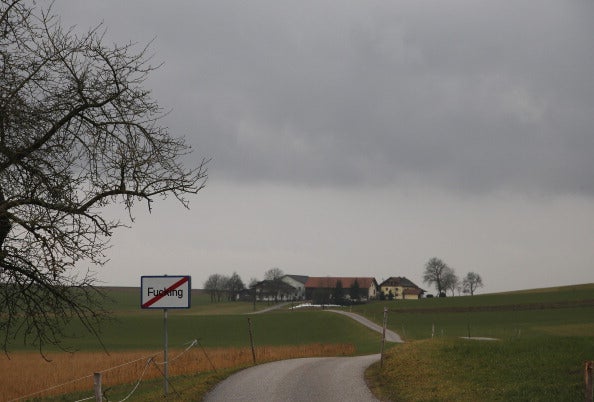After decades of mockery, Austrian village changes name from ‘F***ing’ to Fugging
Residents were tired of local signs being stolen because of the village’s unfortunate correlation with an English swear word

The residents of a village in Austria will see in the new year under a new name – Fugging – after they grew tired of the mockery and sniggers that its old name received.
Located in the north of Salzburg and near the German border, the original name of the village, Fucking, dates back to the 11th century.
Its inhabitants have finally grown weary of the mockery it received in international media and online for its resemblance to the English swear word, not to mention repeated incidents where the village’s signs have been stolen.
The decision to change the name was posted on the website of the Tarsdorf municipality, which the village is a part of, and was confirmed by the mayor herself. “I am confirming that it has in fact been decided by the local council. I will not say any more about it,” Mayor Andrea Holzner was quoted as saying by Reuters.
Over the years the village had become something of a site of pilgrimage for tourists, who would take pictures next to the signpost at its entrance. Souvenir-hunting vandals repeatedly went one step further and stole the sign itself, forcing the authorities to use theft-resistant concrete when installing replacements.
The original name has nothing to do with the modern-day swear word in English, and has been documented since 1070. Experts believe it could be derived from Adalpert von Vuckingen, who lived in the region in the 11th century.
But the name could go back further still, with records that a 6th century Bavarian nobleman named Focko founded a settlement in the area. In a land registry map from 1825 the village is called Fuking. It is not known when the "c" was added, which makes it identical to the English word, reported regional daily Oberoesterreichische Nachrichten (OOeN).
Social media users also reacted to the announcement with amusement.
Additional reporting from the wires.
Join our commenting forum
Join thought-provoking conversations, follow other Independent readers and see their replies
Comments
Bookmark popover
Removed from bookmarks